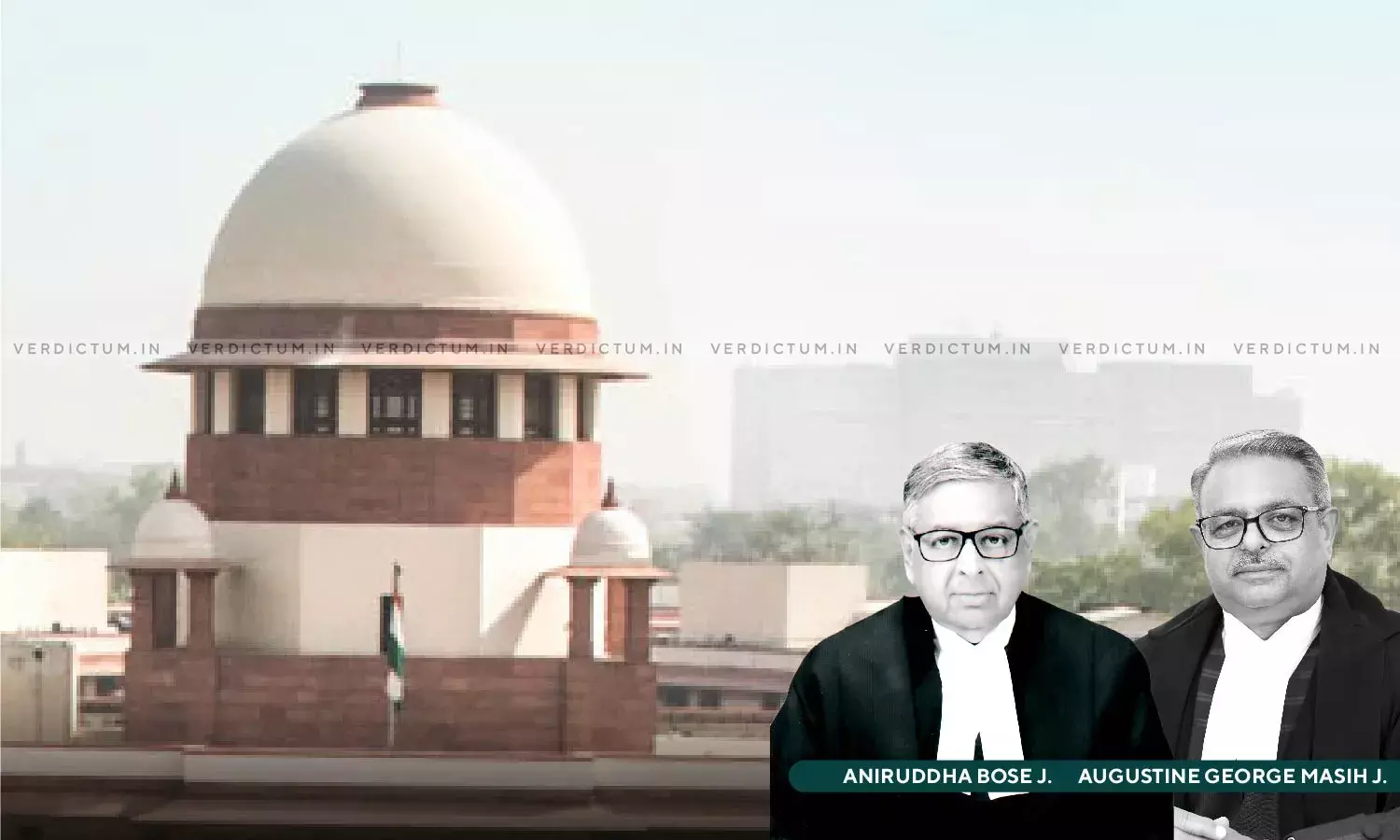NDPS Act| Power To Search & Seize Are Temporary Interference With Rights Of Accused; Cannot Be Considered As Violation Of Fundamental Rights: SC
The Supreme Court observed that the statutory provisions in the NDPS Act which confer authorities with the power to search and seize are only a temporary interference with the rights of the accused, and hence cannot be considered as a violation of fundamental rights.
In that context, the Bench of Justice Aniruddha Bose and Justice Augustine Geoge Masih observed that, "statutory provisions conferring authorities with the power to search and seize are a mere temporary interference with the right of the accused as they stand well regulated by reasonable restrictions emanating from the statutory provisions itself. Thence, such a power cannot be considered as a violation of any fundamental rights of the person concerned."
In this case, an intelligence officer had received information about Accused No. 04 carrying narcotics in an auto-rickshaw. A raiding party attempted to intercept the auto-rickshaw, which fled, leading to a chase and the discovery of abandoned narcotics. Subsequently, narcotics were found in Accused No. 04’s house, leading to the arrest of Accused No. 01 and Accused No. 02. The High Court of Gujarat affirmed the convictions of Accused No. 01 and Accused No. 04, citing substantial evidence and legal compliance. Accused No. 02 was acquitted due to insufficient evidence linking him to the criminal activities.
The Apex Court observed that the prosecution was not able to establish its case beyond reasonable doubt. In that context, it was said that, "Because the secret information... in the present facts was limited to the apprehension that Accused No. 04 was to carry contraband via an auto rickshaw from a particular route. There is no reference to the apprehension of existence of contraband in the house of the Accused No. 04 in the said recorded information. Thence, the raid at the house of the Accused No. 01 and Accused No. 04 is in violation of the statutory mandate of Section 41(2) of the NDPS Act 1985".
It was further observed that Section 67 is at an antecedent stage to the investigation, which occurs after the empowered officer under Section 42 of the NDPS Act 1985 has the reason to believe upon information gathered in an enquiry made on that behalf that an offence under NDPS Act 1985 has been committed and is thus not even like a confessional statement. Hence, the question of its being admissible in trial as a confessional statement against the accused does not arise.
Subsequently, the appeals were allowed, and the appellants were acquitted of the charges framed against them by giving them the benefit of the doubt.
Cause Title: Najmunisha & Anr. vs The State of Gujarat & Anr.
Click here to read/download the Judgment




